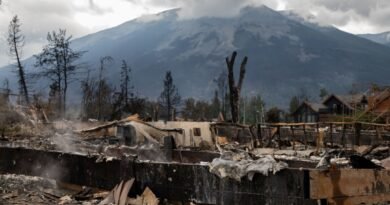DFAT Reports Australia’s Failure to Sanction CCP Officials for Human Rights Abuses
DFAT confirmed that Australia has sanctioned one Chinese individual for involvement in the proliferation of weapons of mass destruction in Iran.
The Department of Foreign Affairs and Trade (DFAT) disclosed that Australia has not imposed sanctions on Chinese Communist Party’s (CCP) officials connected to human rights abuses.
The federal parliament is currently examining the application of the Autonomous Sanctions Amendment (Magnitsky-style and Other Thematic Sanctions) Act 2021, commonly known as the Magnitsky Act, which permits targeted sanctions against human rights violators.
Named after Sergei Magnitsky, a Russian lawyer who exposed a US$230 million ($368 million) corruption scheme involving the Russian government.
Instead of receiving recognition for his whistleblowing, he was unjustly imprisoned and reportedly subjected to torture leading to his death.
In 2012, the United States enacted the Magnitsky Act to penalize Russian officials responsible for Magnitsky’s death by imposing sanctions on them.
To date, 35 countries have adopted the Global Magnitsky Act into their legal frameworks, with Australia joining in 2021.
No Sanctions on CCP Officials for Human Rights Abuses: DFAT
During a recent parliamentary inquiry, Liberal Senator Linda Reynolds questioned DFAT representatives about the number of sanctions Australia had enforced on Chinese individuals under the Magnitsky framework.
Julie Heckscher, DFAT’s first assistant secretary of the regulatory and legal policy division, initially stated that there were no such sanctions against Chinese individuals.
She later corrected herself and mentioned that one Chinese individual had been sanctioned, specifically for involvement in the proliferation of weapons of mass destruction in Iran and not for human rights abuses.
Reynolds then asked if there had been any sanctions related to human rights abuses in China.
Heckscher replied, “There haven’t been any sanctions at all.”
When questioned about the possibility of Australia following the U.S. in sanctioning Chinese officials for human rights violations in Tibet and Xinjiang, Heckscher refrained from offering an opinion.
She emphasized that sanction decisions rest with the relevant minister and must align with specific legal requirements.
Heckscher also highlighted that sanctions are one of the mechanisms Australia employs to address human rights violations.
“There has been no sanctions action concerning China. However, there has been action on broader human rights issues,” she explained.
Australia Has Imposed Sanctions on 85 Foreign Individuals: DFAT
Since the enactment of the Magnitsky Act in 2021, Australia has sanctioned 85 foreign individuals and 18 entities.
“This includes 25 Russian individuals involved in Sergei Magnitsky’s abuse and death, 36 Iranian individuals, and 17 entities implicated in the oppression of women and girls and the suppression of peaceful protesters,” Heckscher reported.
Among the sanctioned individuals are seven connected to the poisoning of Russian Opposition Leader Alexei Navalny, seven Israelis, and one entity involved in settler violence against Palestinians in the West Bank.
“These sanctions signify the government’s commitment to human rights as a foundation of international peace and security,” Heckscher remarked.
“They convey Australia’s stance on severe international incidents and demonstrate solidarity with victims of human rights abuses and defenders of human rights.”



